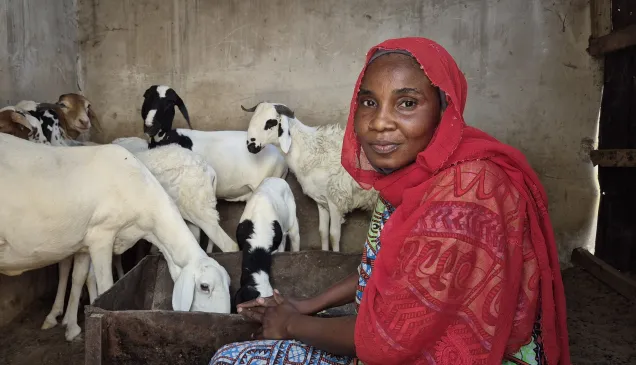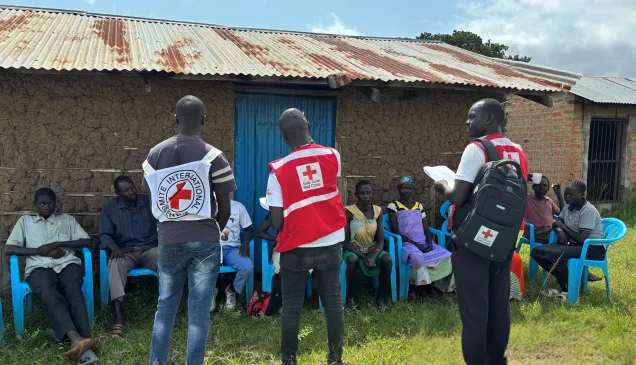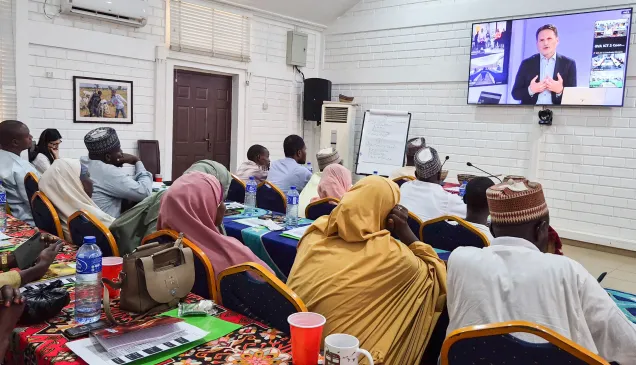Nigeria: Livestock programmes help restore and sustain livelihoods
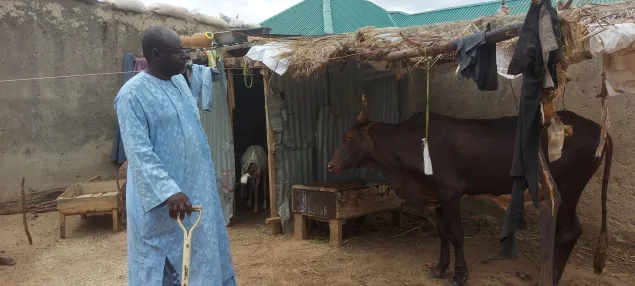
Babagana Adam is a 50-year old livestock keeper displaced from Ngala local government area to Gubio camp, in Maiduguri. ICRC assisted him to restart his business by giving him funds. With the funds, he was able to buy a bull which he fattened and sold. With some of his profit, he has bought another bull.
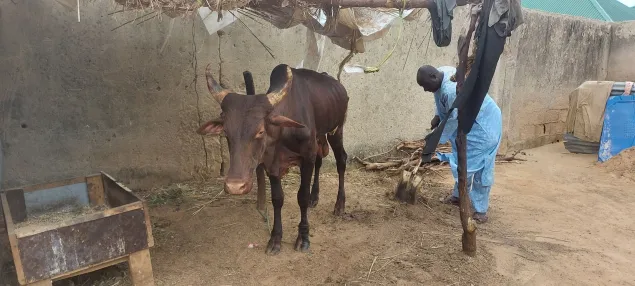
Babagana takes good care of his bull, ensuring the bull's pen is always clean to avoid diseases.
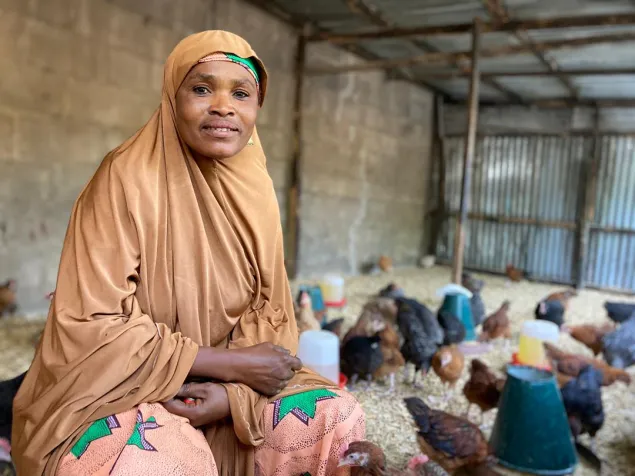
Aisha Usman, Maiduguri
Aishatu Usman, a mother of seven, is one of the women we've supported through our poultry project initiative. She attended training on poultry production in collaboration with the Senator Ali Modu Sheriff Veterinary Hospital in Maiduguri. At the end of the training, we provided her with the funds to start her own poultry rearing business. Female-headed households are the most affected by the ongoing armed conflict due to their limited access to regular and sustainable livelihoods to cover their needs.
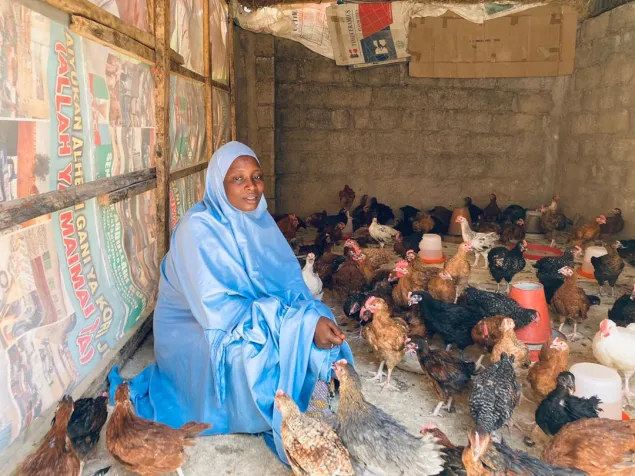
Hajara Ibrahim Musa, Maiduguri
Hajara Ibrahim Musa, a mother of eight children, is one of the 57 women-headed households that the ICRC trained and equipped in Maiduguri with a grant for small-scale poultry production.
“I am happy that I now have a business that caters to my needs and my children’s needs,” Hajara said.
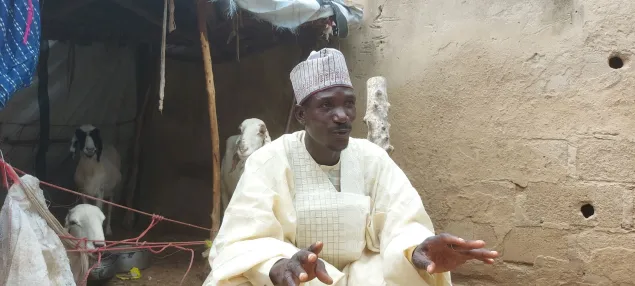
Kabiru, Gubio Camp, Maiduguri
Kabiru has been residing in Gubio Internally Displaced Persons (IDP)Camp for nearly seven years. With ICRC's support, he now rears sheep and sells grains in the camp. He said this business activity has changed his life for the better. "Even my diet has changed, in the past, I used to struggle to eat. But nowadays, I can eat what I want,” he said.
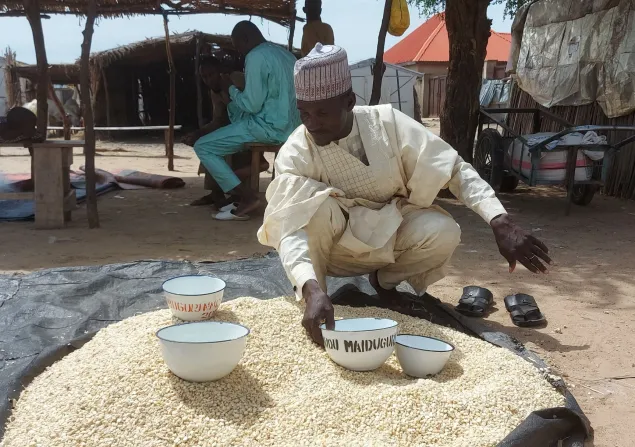
Kabiru used some of the profit from the initial grant he got from the ICRC to expand his business.
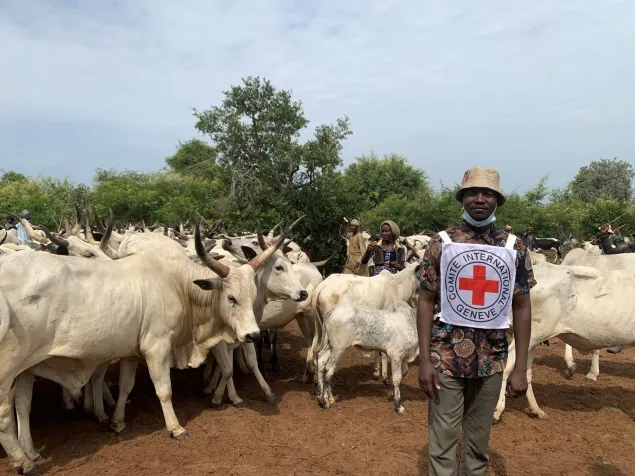
Vaccination campaigns in Adawama, Borno and Benue States
From part of Gongoshi Grazing Reserve in Mayo Belwa LGA, our colleagues from the livestock team in collaboration with the Ministry of Livestock, technical staff, and agro-pastoralist volunteers vaccinated nearly 400,000 livestock in Adamawa in the last quarter of 2021.
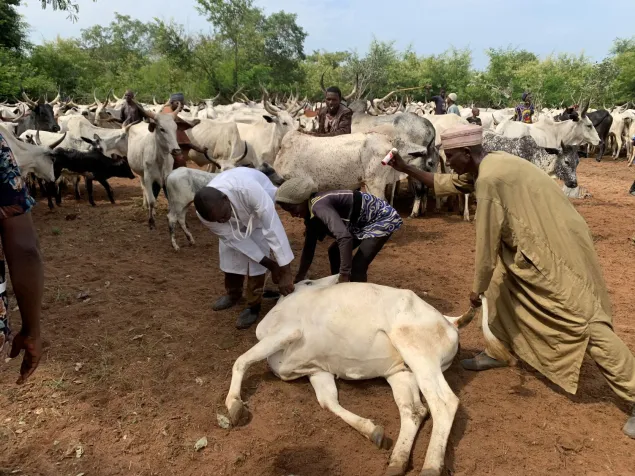
Vaccinating cattle is not an easy job. Here, our staff is assisted by herders to help jab a cow in a community near Mayo Belwa, Adamawa State.
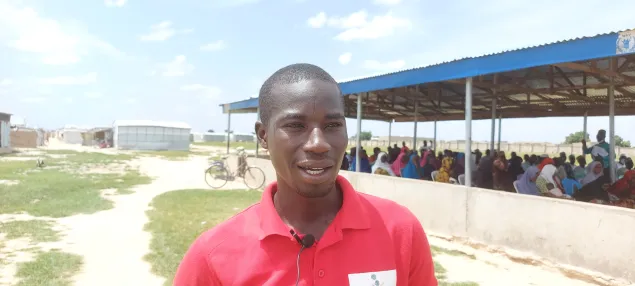
Habu Ibrahim, Bakassi Camp, Maiduguri
Habu, displaced to Bakassi Camp in Maiduguri by armed conflict, has been engaged in livestock keeping throughout his adult life. He was a participant at an ICRC training for livestock keepers in the camp.
He said, "until this training, I did not know that disease could be transmitted from animals to people. In the past, we used to soak some potash (mineral rock) and give it to animals when they fell sick. We didn’t know which medication to give them. During the training, the Veterinary Doctor taught us how to take better care of our animals.”
For centuries, livestock keeping has been a major source of livelihood for pastoralists and agro-pastoralist communities in Nigeria, especially in the North East, North Central, and North West regions. However, the ongoing armed conflict has displaced millions of people affecting the livelihoods of communities including livestock rearing communities.
In 2021, the International Committee of the Red Cross (ICRC) in collaboration with the respective state ministry of livestock has been working in Borno, Adamawa, and Yobe States providing training to livestock owners, support to veterinary hospitals, Community Animal Health Worker Training and conducting livestock vaccination and treatment campaigns. We also provided displaced livestock owners with small grants to help them restore their livelihoods.
In Adamawa State, we supported the vaccination of nearly 400,000 livestock (goats, sheep, and cattle). The vaccination covered five Local Government Areas (LGAs) including Mayo Belwa, Maiha, Michika and Madagali. While in Maiduguri, Borno State, over 10,000 livestock owned by displaced people in Bakassi IDP Camp benefited from vaccination and treatment of their livestock against important livestock diseases. We also supported Senator Ali Modu Sheriff Veterinary Hospital with veterinary drugs and equipment benefiting over 20,000 livestock and poultry-keeping households. Additionally, pastoral communities in hard-to-reach locations in Borno, Adamawa, and Yobe States had Community Animal Health Worker Training to strengthen livestock health service delivery.
Vaccination campaigns ensure that animals are protected against diseases, which assists in saving money that could be lost to the high cost of treating sick livestock. Healthy livestock also produces higher milk yields and thus additional income for households.

